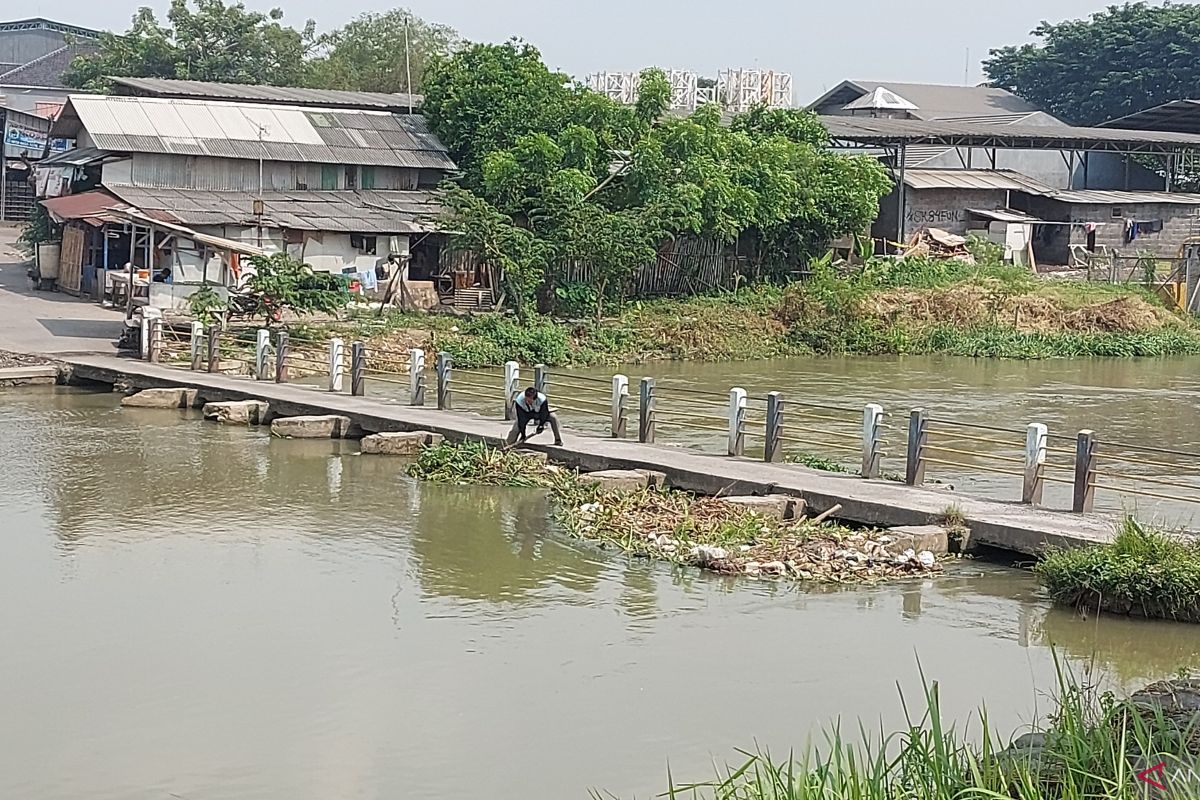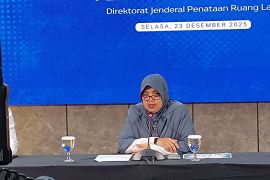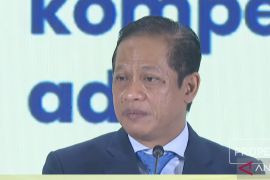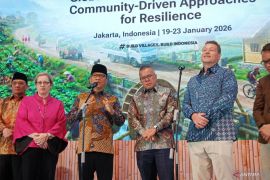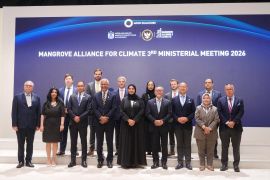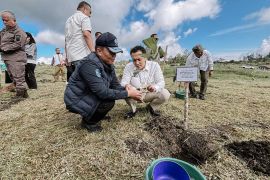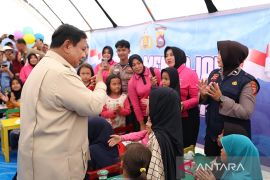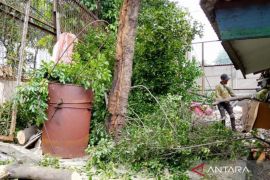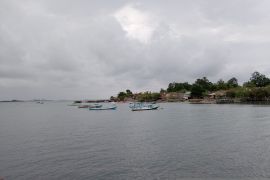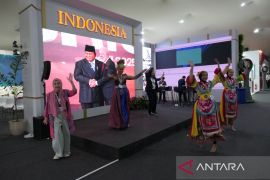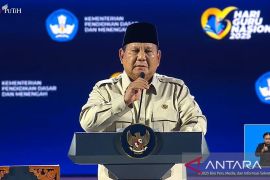Climate change has a huge impact on drinking water services in Indonesia.Jakarta (ANTARA) - Climate change is increasingly having a real impact on human life. From January 1 to May 1 this year alone, the National Disaster Management Agency (BNPB) has recorded more than 700 natural disasters in Indonesia.
Hydrometeorological disasters are the most common, with 485 floods recorded this year. Other disasters include 139 extreme weather events, 58 landslides, and 39 forest and land fires induced by drought.
For Jakarta residents, in particular, heavy rain can have a tremendous impact on their environment.
Its geographical location—in the lowlands, between the river headwaters and the coast—has made Jakarta increasingly vulnerable to flooding.
Meanwhile, the dry season, which the Meteorology, Climatology, and Geophysical Agency (BMKG) has predicted from early May to August 2024, could also cause a number of inevitable impacts, such as hot weather and drought. These could also lead to water scarcity.
Climate change can have cascading consequences, especially in terms of the availability of clean water sources, which are vital for human survival, according to Subekti, Executive Director of the Indonesian Drinking Water Companies Association (PERPAMSI), on May 9.
"Climate change has a huge impact on drinking water services in Indonesia," he observed.
Climate change is disrupting hydrological patterns, making dry and rainy seasons no longer as regular as before, he added.
"Usually in March, there is no longer any rain because that period is entering the dry season. However, the distribution of rain still occurs during this period. So, the pattern is changing," he pointed out.
Changes in hydrological patterns, he said, have greatly affected clean water services in Indonesia because floods cause water excess, which makes water purification difficult.
Subekti said that too much rain causes the water to become too muddy.
"If the water is too muddy, it makes it very difficult to process it into clean water because this requires companies to use a lot of chemicals," he explained.
Meanwhile, extreme dry seasons due to climate change can also cause drought, which could, in turn, trigger water scarcity. Such water scarcity would greatly affect the provision of clean water for residents.
"Jakarta itself has a (water treatment) installation that produces 500 liters of water per second in urban forests. However, the drought caused seawater to enter; there was seawater intrusion. This intrusion caused the installation to be unable to operate for almost two months," he said.
"So, the impacts of climate change are really being felt on drinking water services in particular," he added.
Handling Efforts
According to Subekti, there are a number of reservoirs and rivers that serve as sources of clean water for Jakarta residents. The reservoirs and rivers include the Jatiluhur Reservoir in Purwakarta, the Cisadane River in Serpong, and several sources from the Jakarta area itself.
Despite this, the need for clean water in Jakarta is still quite high, in line with the growth of its population, he said.
To address the limited raw water supply, several efforts are needed, including increasing water capacity through building dams, embankments, and so on, he added.
To tackle flooding during the rainy season and water scarcity during the dry season, the Jakarta provincial government is planning to build 12 reservoirs, lakes, and ponds by 2024, as per data from the Jakarta Water Resources (SDA) Service.
Eight of the 12 plans are a continuation of developments undertaken in previous years. The 12 reservoirs include the Kampung Rawa Malang Reservoir, the Marunda Reservoir, the Kali Cipinang Reservoir in Dukuh village, the reservoir on Jalan Penganten Ali 3, and the reservoir on Jalan H Dogol.
Next are the Puspalad Complex Reservoir in West Cakung, the Bau Bangkong Reservoir, the reservoir in Cipayung, and the green open space of Kampung Dukuh. Then, there are also the Pekayon Reservoir, Jalan Kaja II Reservoir, Pemuda Reservoir, and SD 01 Pesanggrahan Reservoir.
Further, as many as 147 reservoirs, ponds, embungs (retention basins), and empangs (fishponds) have been built in Jakarta.
Besides building reservoirs to increase water capacity, another step that needs to be taken to increase raw water reserves is exploring alternative options, including processing wastewater.
"If river water is polluted by waste, for example, domestic waste, then it cannot be treated because it does not meet the quality standards for drinking water. Therefore, wastewater treatment must be carried out on a massive scale," he explained.
In the meantime, to ensure clean water availability for Jakarta residents, the Jakarta government is also emphasizing the importance of stopping the usage of groundwater in the area.
The use of groundwater for clean water needs for Jakarta residents, especially in North Jakarta, has been prohibited because, in this area, the condition of groundwater is no longer suitable and is in the dangerous category.
The prohibition is regulated in Jakarta Governor Regulation Number 93 of 2021 concerning groundwater-free zones.
Article 2 of the regulation lays down a number of criteria and targets for groundwater-free zones, and it has been implemented starting August 1, 2023.
One of the causes of the restrictions is the quality of the groundwater, which is worsening because drilled wells are being built close to latrines and the dense population in the area is making the groundwater contaminated with bacteria and pollutants.
To address this problem, the Jakarta government is encouraging regional-owned drinking water company PAM Jaya to install piping to meet residents' needs for clean water.
Acting Governor of Jakarta, Heru Budi Hartono, confirmed that the installation of the pipeline network in the Kamal Muara area is free of charge. He also asked residents to use and maintain the water from PAM Jaya wisely.
So far, the pipeline system built by PAM Jaya has been installed from Tangerang to Bekasi and from Marunda Kepu to the Tangerang border.
Meanwhile, PAM Jaya Service Director Syahrul Hasan said that his company is currently refocusing on providing and serving residents' needs for drinking water directly, a task previously managed by private partners, namely Aetra and Palyja.
PAM Jaya has recently started a drinking water supply system (SPAM) development project to achieve the target of 100 percent piped drinking water coverage in Jakarta by 2030.
Clean water is vital for human survival. Therefore, all stakeholders, together with the community, must strive to ensure its availability and preservation to secure Indonesia's future development.
Related news: Trillions of dollars required for addressing climate change: RI govt
Related news: BRIN warns of rising heat impact on Indonesia's food crop production
Editor: Anton Santoso
Copyright © ANTARA 2024
